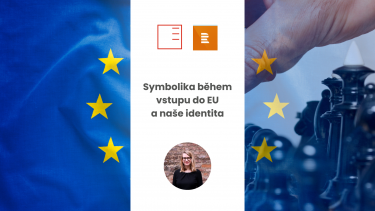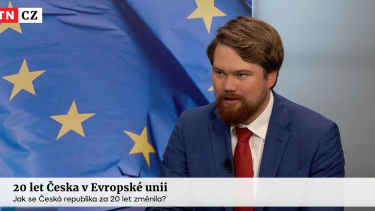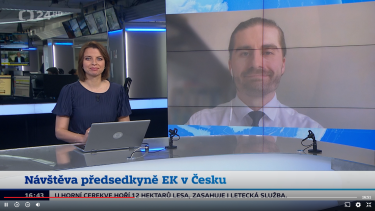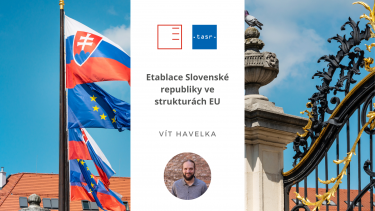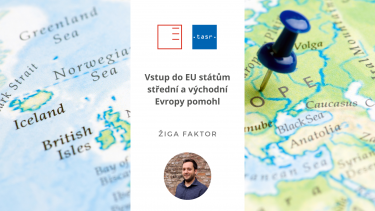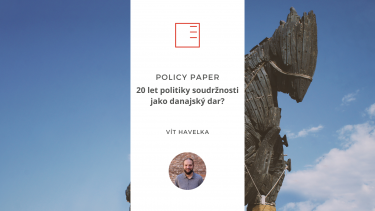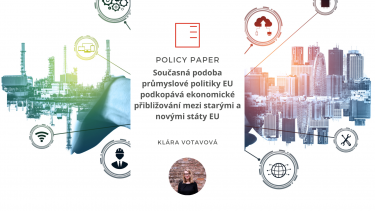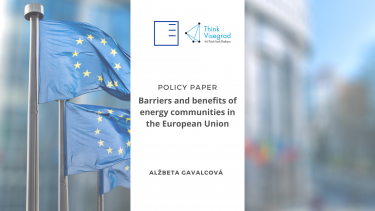Chyba systému | Symbolism during EU accession and our identity in the EU
This year, the Czech Republic celebrates 20 years since its accession to the European Union. Klára Votavová, a researcher from EUROPEUM Institute, points out in the political podcast "Chyba systému" by Czech Radio, that the accession wasn't as carefully considered as it might seem. And the idea of returning to Europe may have been overly optimistic. This is now reflected in the attitudes of Czechs towards the EU.
Show moreTN.cz | 20 years of Czechia in the EU
On the 1st of May, we celebrate the 20th anniversary of the Czech Republic's accession to the European Union. How did the process of approval and accession to the EU proceed at the beginning of this century? What is the attitude of Czechs towards the EU? What was the original idea of the European community? The Executive Director of EUROPEUM Institute, Martin Vokálek, answered these questions for TN Live.
Show more
ČT24 | Visit of the European Commission President to the Czech Republic
European Commission President Ursula von der Leyen arrived in the Czech Republic. She met with President Petr Pavel and Prime Minister Petr Fiala. The visit was part of the campaign ahead of the European Parliament elections in June. Viktor Daněk, Deputy Director of EUROPEUM Institute, commented on Ursula von der Leyen's arrival in the Czech Republic.
Show moreRTVS | Slovakia has been in the EU for 20 years
Slovakia joined the European Union 20 years ago in its biggest enlargement to date. Among the main benefits of this move is an increase in the economy, up to 80%. Žiga Faktor, deputy director and head of EUROPEUM Institute's Brussels office, described the future direction of the Union.
Show more
TASR | Establishment of the Slovak Republic in the EU structures
Twenty years ago, the European Union underwent its biggest enlargement with the addition of ten Central and Eastern European countries. According to Vít Havelka, Senior Research Fellow at EUROPEUM Institute, this is enough time for all accession countries to learn how to navigate the EU institutions and its decision-making process.
Show more
TASR | EU accession helped Central and Eastern European countries
In 2004, a total of ten new countries joined the European Union, the largest enlargement in terms of population and number of countries. EU accession has helped the countries of Central and Eastern Europe, especially in terms of economic growth and political stabilisation. Žiga Faktor, Deputy Director of EUROPEUM Institute and Head of the Brussels Office, commented on this topic.
Show more
Policy Paper | 20 years of cohesion policy as a "Beware of Greeks bearing gifts"?
It has been 20 years since the Czech Republic and 9 other Central, Southern and Eastern European countries joined the European Union. This was on the promise of increased prosperity and the so-called economic catching-up of the post-communist part of Europe. Cohesion policy was to play a key role here. Vít Havelka writes in his Policy Paper.
Show more
Policy paper | Current EU industrial policy undermines economic convergence between old and new EU countries
The post-communist states of Central and Eastern Europe, including the Czech Republic, joined the European Union at the height of globalisation and the dominance of the so-called Washington Consensus policies. However, the global economic crisis of 2008 showed shortly afterwards that these policies had their limits. Read more in Klára Votavová's Policy Pepeu.
Show morePolicy paper | Have we caught up with the West? - 20 years of convergence through the lens of wage levels
This year, the EU marks the anniversary of the biggest wave of enlargement in its history, when the Czech Republic joined the Union along with nine other Central and Eastern European countries. One of the main promises associated with enlargement was that the new Member States would catch up with Western Europe in terms of living standards. Read more in Silke Maes' policy paper.
Show morePolicy Paper | Barriers and benefits of energy communities in the European Union
Energy communities are an effective means to decentralize and renew our energy systems with sustainable solutions as they are usually based on renewable energy. They have already started emerging in 1970´s, yet there has been a significant increase in their development only in recent years, also in terms of their introduction into the EU legislation. Especially in Western and Northern European countries the concept already enjoys vast popularity. On the other hand, in Central and Eastern European countries (further referred to as CEE) energy communities are only beginning to emerge. The policy brief (based on literature and interviews with various stakeholders ) examines the benefits energy communities may bring, and more importantly, the main obstacles remaining in their way for greater evolution in the CEE region – and especially Visegrad countries (V4). As these initiatives progress, sharing the best practices will ensure the success of the community energy in the energy transition. Writes Alžbeta Gavalcová.
Show moreStaroměstské náměstí 4/1
Prague 1 - Staré Město
110 00
tel.: +420 212 246 552
email: europeum@europeum.org
https://www.europeum.org
